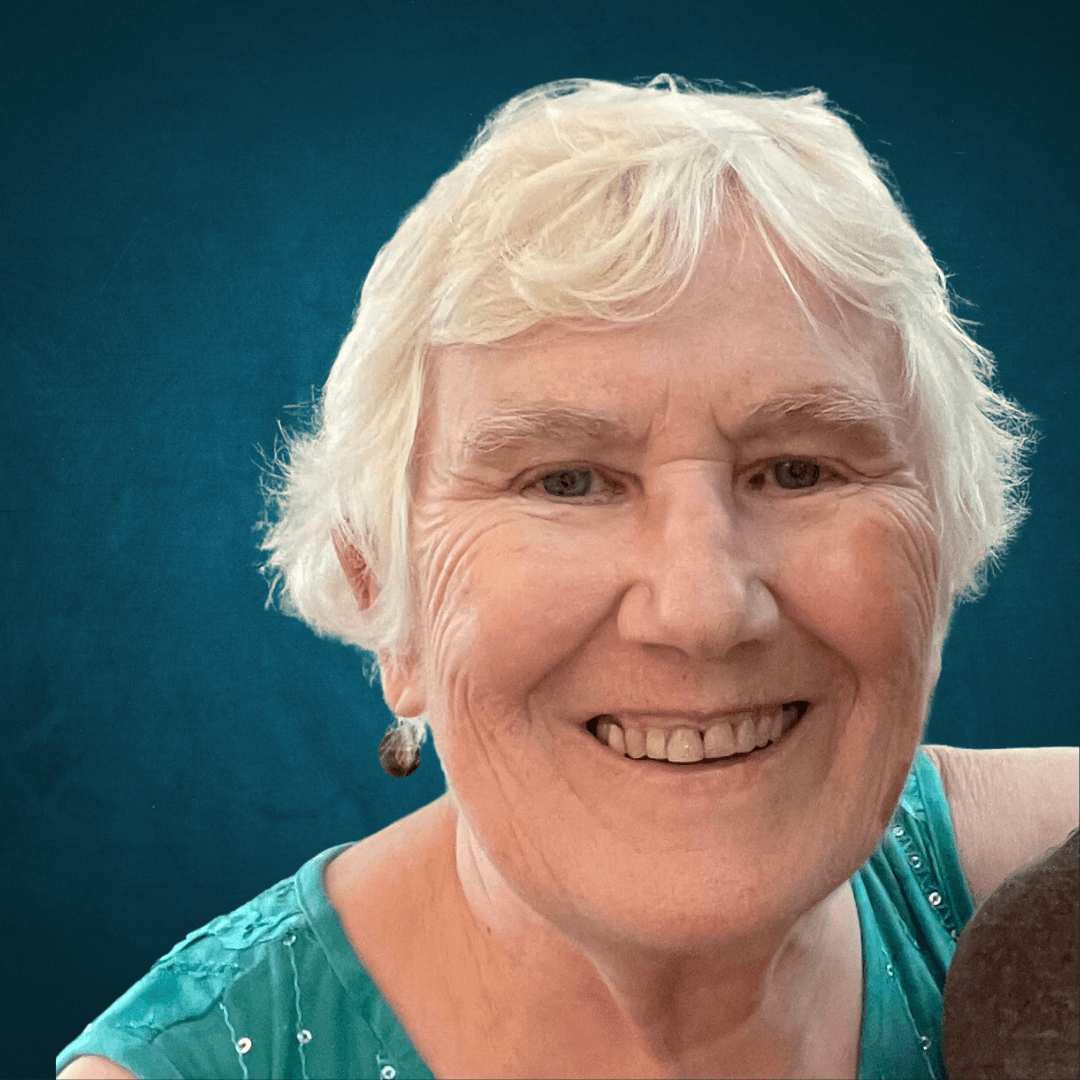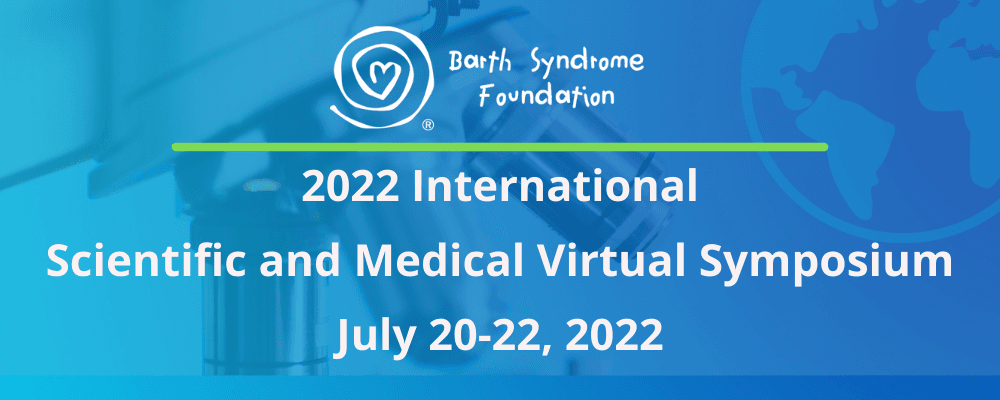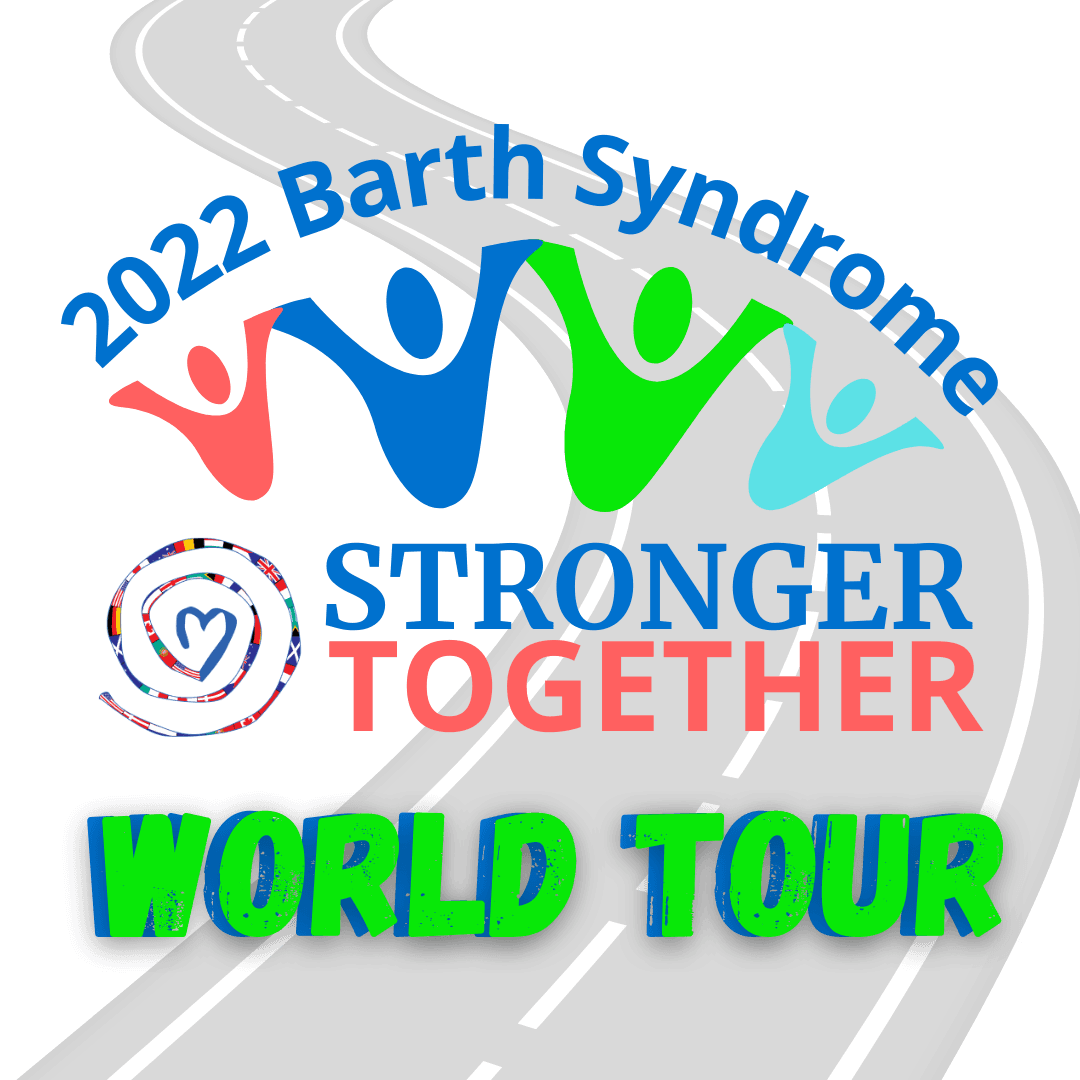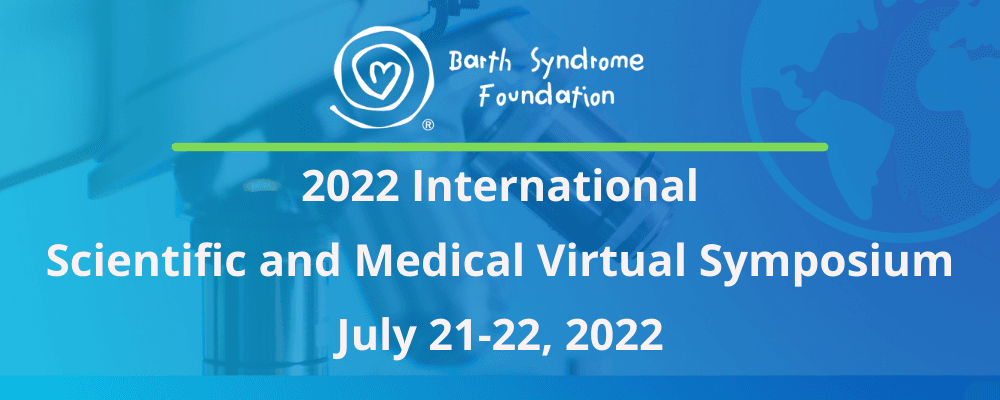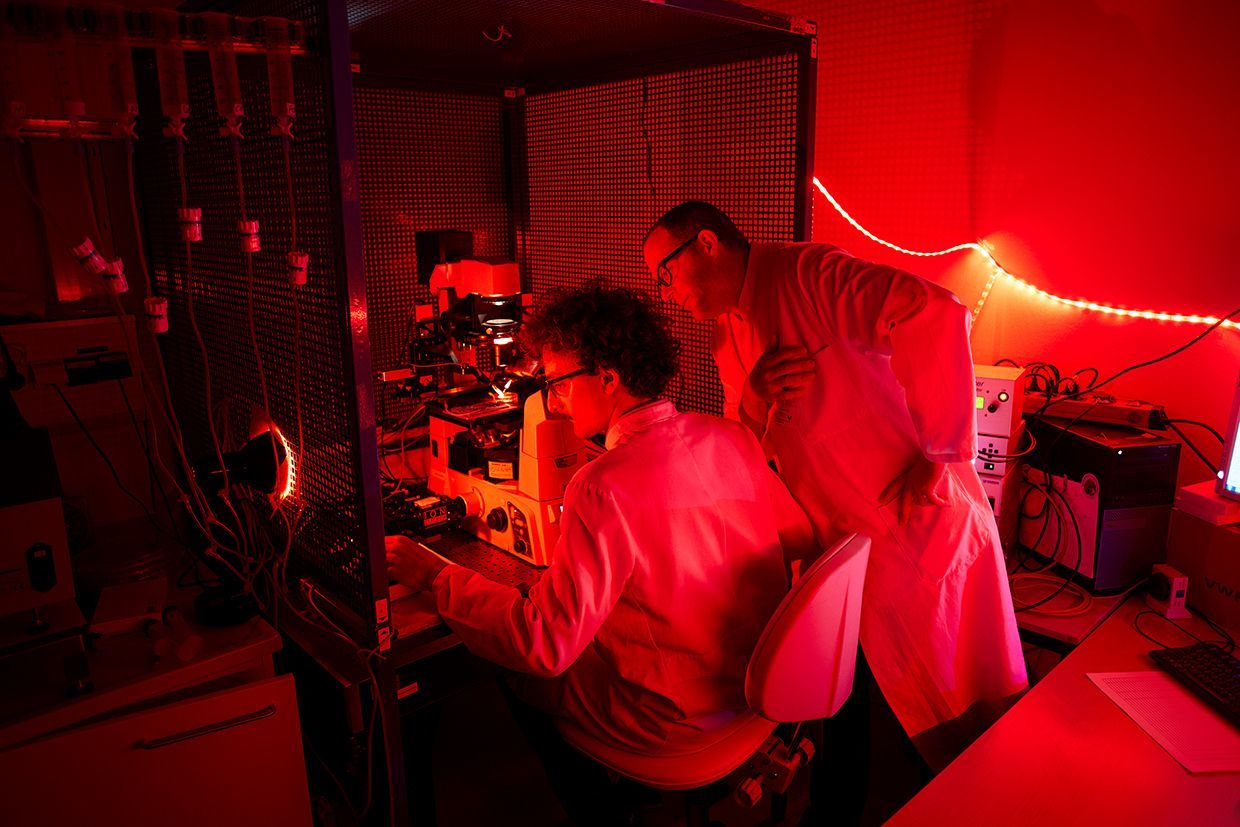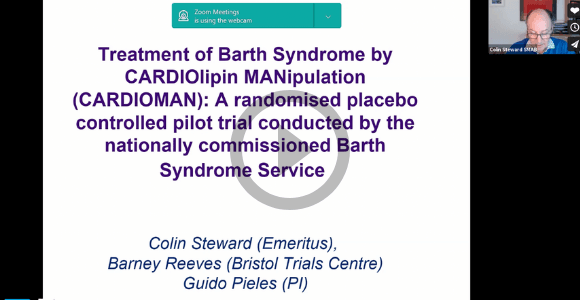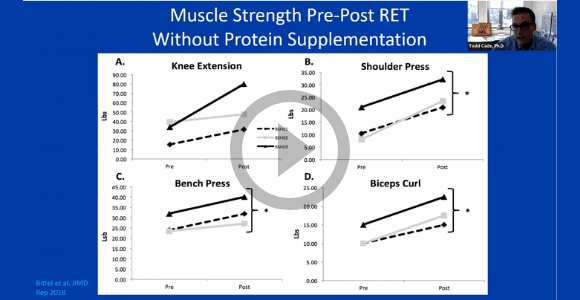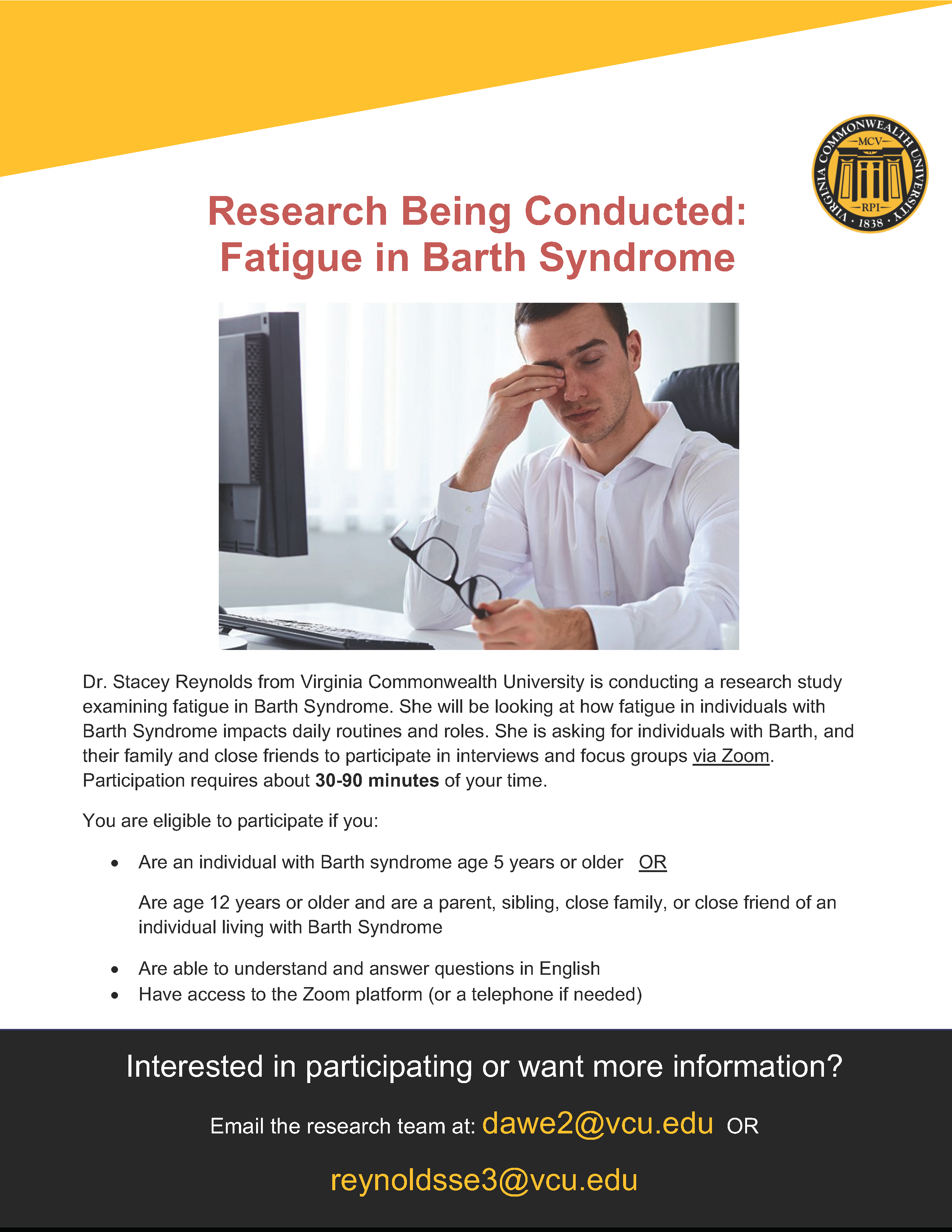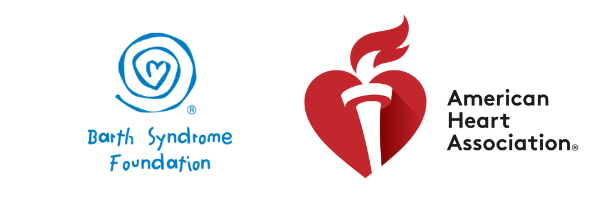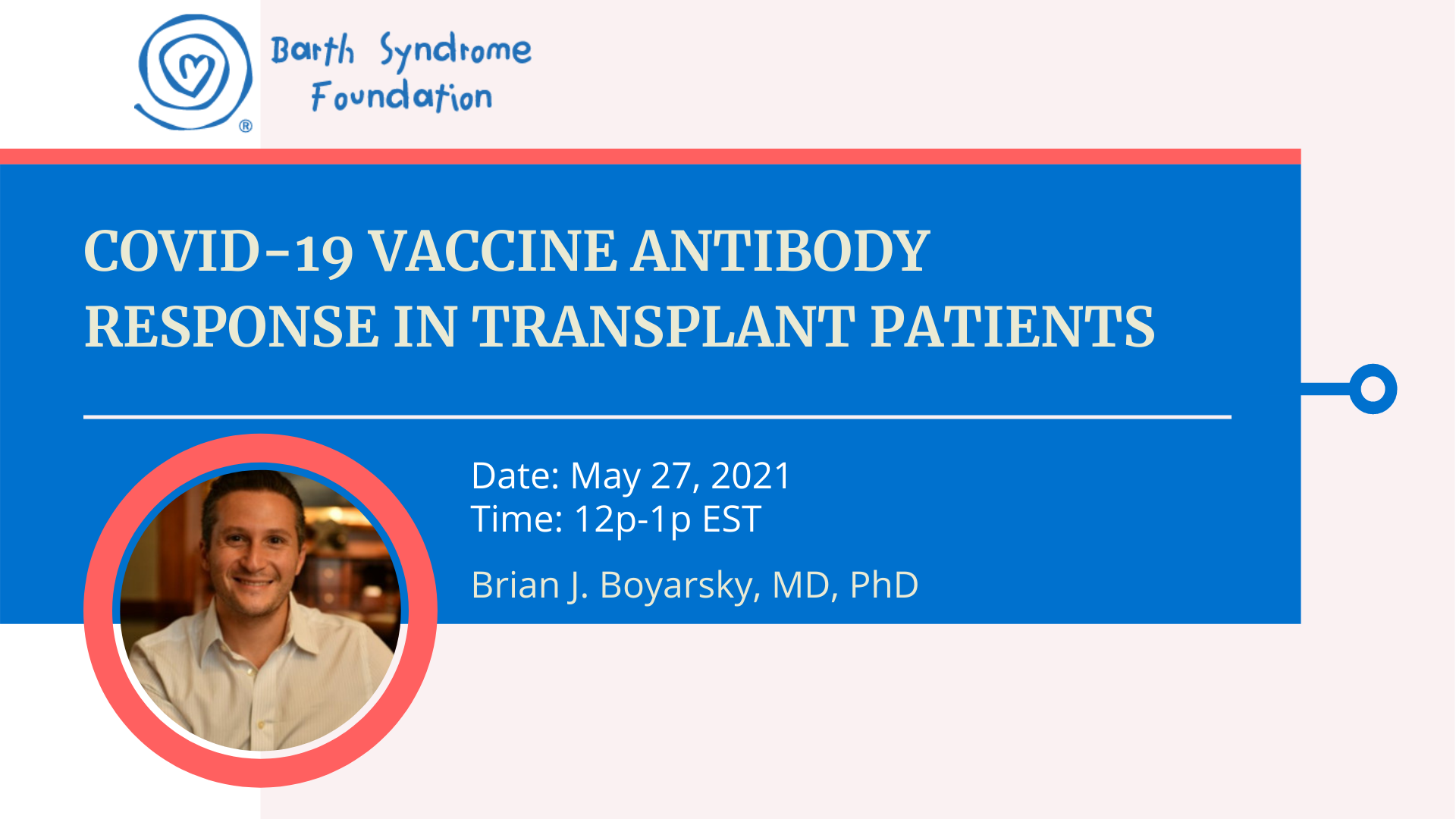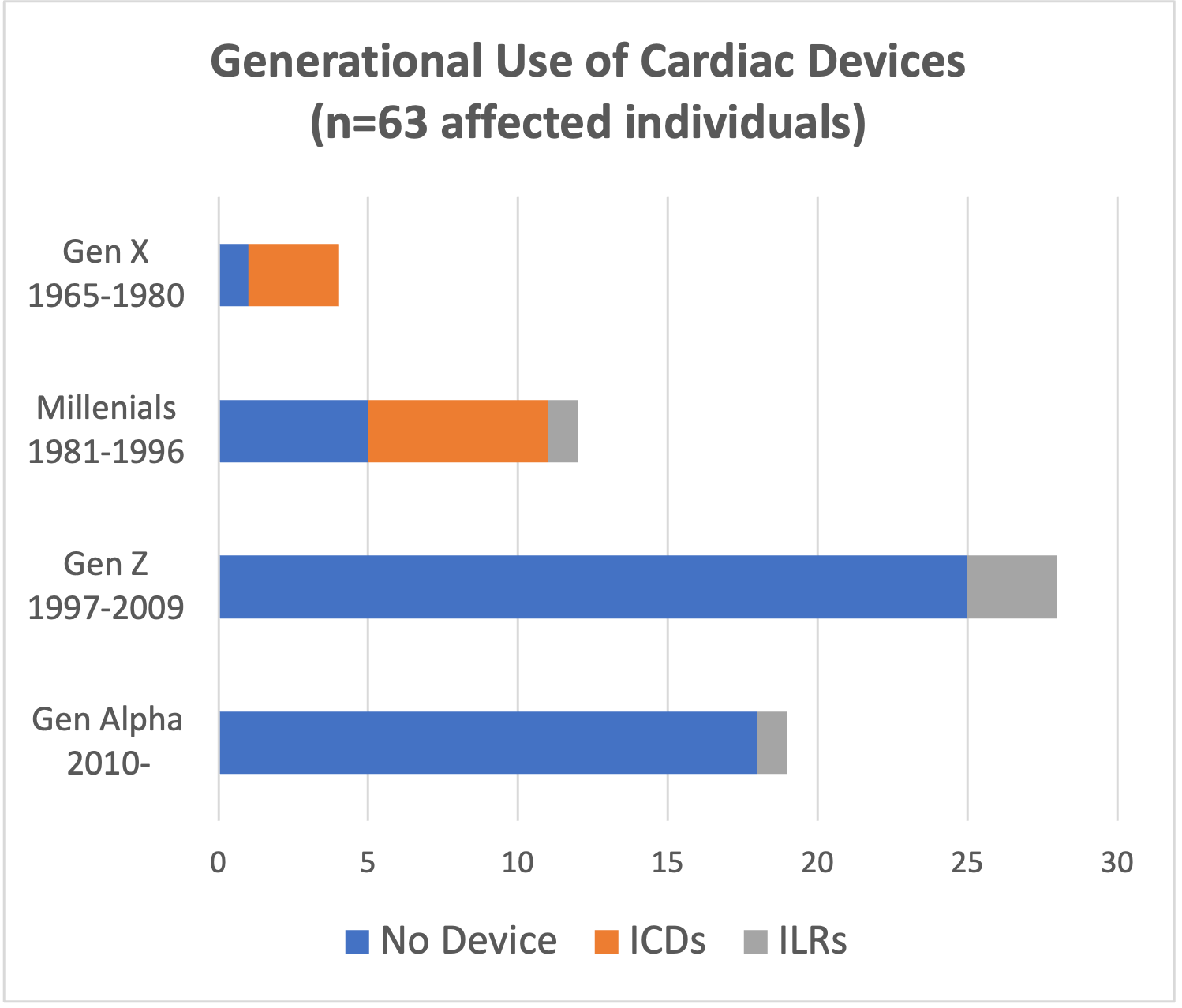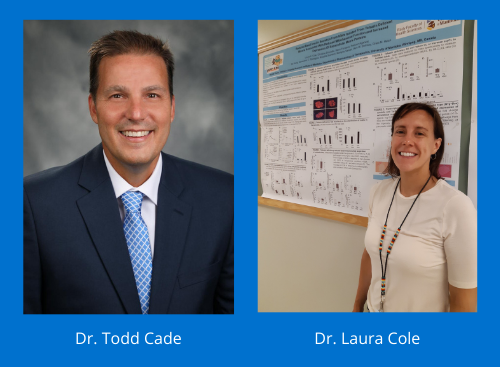BSF is thrilled to announce the creation of the Iris L. Gonzalez Prize (“Prize”) to advance our collective understanding of genetic variants of Barth syndrome. Generously supported by the Paula and Woody Varner Fund, BSF will award a $10,000 prize to an individual or team proposing innovative...
The two-part Journal of Inherited Metabolic Disease (JIMD) podcast accompanying the Barth syndrome special issue of the journal is now available....
Our research community continues to make strides in advancing Barth syndrome science and medicine. And we invite you to join the presenters below for their selected abstracts featured in this year’s agenda!
#StrongerTogether was our theme for the 2022 International Barth Syndrome Scientific, Medical, and Family Conference. COVID-19 dampened our ambitions to come together in Florida for the Conference, yet we continue to believe that We Are #StrongerTogether. The BSF Community never, ever gives up on our ideals, so we are hitting the road to be #StrongerTogether around the globe.
Barth Syndrome Foundation (BSF) is seeking abstracts for our second Scientific & Medical (SciMed) Virtual Symposium and welcome submissions in Barth syndrome discovery science...
We are pleased to announce that we are now a participating organization of The Research Acceleration and Innovation Network (TRAIN), a FasterCures...
Würzburg scientists identify missing mitochondrial calcium channel as trigger for arrhythmias and heart failure for the disease Barth syndrome. Click the title above to read more.
On November 8, 2021, Dr. Colin Steward (Emeritus, U. Bristol), Dr. Guido Pieles (U. Bristol), Dr. Barney Reeves and Lucy Dabner (Bristol Trials Centre) discussed the research basis, findings, challenges, and successes for the UK-based CARDIOMAN trial. Sponsored by the UK National Institute for Health Research, co-funded by BSF, informed, designed, and led by long-time academic research leaders in our field, and ultimately made possible by the initial participation of eleven affected individuals - this nearly 8-year effort encapsulates the adage that it takes a village.
Fatigue and endurance remain critical challenges for our community of affected individuals. On September 24, 2021, Dr. Todd Cade (Duke U.) joined us for a conversation on the role and impact of resistance training in ameliorating these issues. We invited study participants as well as affected individuals that have engaged in resistance training resources and efforts to discuss their firsthand experience with this therapy.
The 2022 grant cycle is now open, and Barth Syndrome Foundation (BSF) and our International Affiliates welcome innovative applications that address the basic, translational, and clinical research challenges of Barth syndrome. Through this program, BSF seeks to provide seed grant funding to young and established investigators in order to generate the preliminary data...
We learned during the 2018 Patient-focused Drug Development (PFDD) meeting of the universal and debilitating impact of fatigue on our affected individuals. To directly address this issue, in 2021 BSF has awarded Dr. Stacey Reynolds (VCU) a grant to better understand what it means to be ‘Barth Tired’. 2021 also saw BSF’s first ever co-funding partnership with the American Heart Association (AHA). Marking a strategic investment by BSF to broaden our research impact...
Dr. Stacey Reynolds from Virginia Commonwealth University is conducting a research study examining fatigue in Barth Syndrome. She will be looking at how fatigue in individuals with Barth Syndrome impacts daily routines and roles. She is asking for individuals with Barth, and their family and close friends to participate in interviews and focus groups via Zoom.
BOSTON (PRWEB) JUNE 1, 2021, Barth Syndrome Foundation (BSF) and American Heart Association (AHA) have co-funded a first-ever, two-year postdoctoral fellowship to advance research around cardiac complications associated with Barth syndrome, a rare, life-threatening, mitochondrial disease. The AHA/BSF fellowship award goes to Dr. Nanami Senoo, a postdoctoral fellow and member of the Mitochondrial Phospholipid Research Center at Johns Hopkins University. Under the jointly funded fellowship, Dr. Senoo will explore the relationship between cardiolipin and the nucleotide transporter ANT1 and potential implications to individuals with Barth syndrome. This important collaboration between the AHA and BSF marks a strategic investment by BSF to broaden its impact by joining forces to accelerate progress through science and education.
Barth Syndrome Foundation is proud to launch the 2021 Barth Webinar series with a presentation and discussion with Brian J. Boyarsky, MD, PhD. He will discuss his team’s ongoing and recently published efforts to assess how well an immune response is generated, or the immunogenicity, of mRNA-based COVID vaccines (Pfizer/BioNTech and Moderna) in solid organ transplant recipients. Dr. Boyarsky's timely and relevant COVID-19 research has been recognized by the White House, published in JAMA, and featured on Fox News. This effort is of immense interest...
Despite the documented and suspected cases of tragic sudden cardiac death due to arrhythmia experienced by our community, limited information is available about the risk factors that predispose an affected individual to these life-threatening events. Utilizing the Barth Syndrome Patient Registry and involving on-site conference research participation by our affected individuals...
Impaired and limited metabolism is a central feature of Barth syndrome, with implications in how our affected individuals eat, sleep, and function. A key challenge in our field is understanding how a dysfunctional enzyme (tafazzin, TAZ) and its abnormal lipid product (cardiolipin, CL) results in altered metabolism. Although much has been impacted by COVID, our research community...
Join BSF for an upcoming webinar, "Potential role of Entresto (sacubitril/valsartan) in Barth syndrome cardiac management", with Dr. John Jefferies (University of Tennessee Health Sciences Center) on February 19th, 2020 at 4:00 PM EDT.
In this webinar, Dr. Jefferies will educate the audience on the current indications for the use of Entresto in heart failure populations, discuss cardiovascular pathophysiology that occurs in patients with Barth syndrome, and review potential clinical and research opportunities for the use of Entresto in the Barth syndrome population.
This webinar is appropriate for families and caregivers of individuals with Barth syndrome as well as healthcare providers. All are welcome. Please click the title to register and receive additional webinar details.
Read the special feature article in the Autumn 2019 Gene Therapy edition of Rare Revolution Magazine. Driven by a community committed to finding a cure for Barth syndrome and two decades of research, the potential for realization of gene therapy for Barth syndrome - and the complexities of making it work - are at the forefront of the organization's mission today.
The Human Tafazzin Gene Variants Database has been updated. Note that there are separate tabs for Pathogenic/Likely Pathogenic, Variants of Unknown Significance (VUS), Benign.
This database includes mutations and variants even when they are repeated. However, they must be present in unrelated families. The aim is to provide information to physicians as to whether or not a mutation found in a patient has been seen before in other affected individuals. The database is also used by researchers. Mutations and variants listed come from the literature, from direct submission by laboratories, and from direct submission by affected families. Pathogenicity of many of the mutations is confirmed by monolysocardiolipin/ cardiolipin assay; mRNA study has characterized some of the splicing variants; large evolutionary alignments provide information about amino acid conservation; family information regarding de novo mutations is included; the functional effects of human TAZ mutations modeled in yeast are included. There are links to the PubMed abstracts of references.


